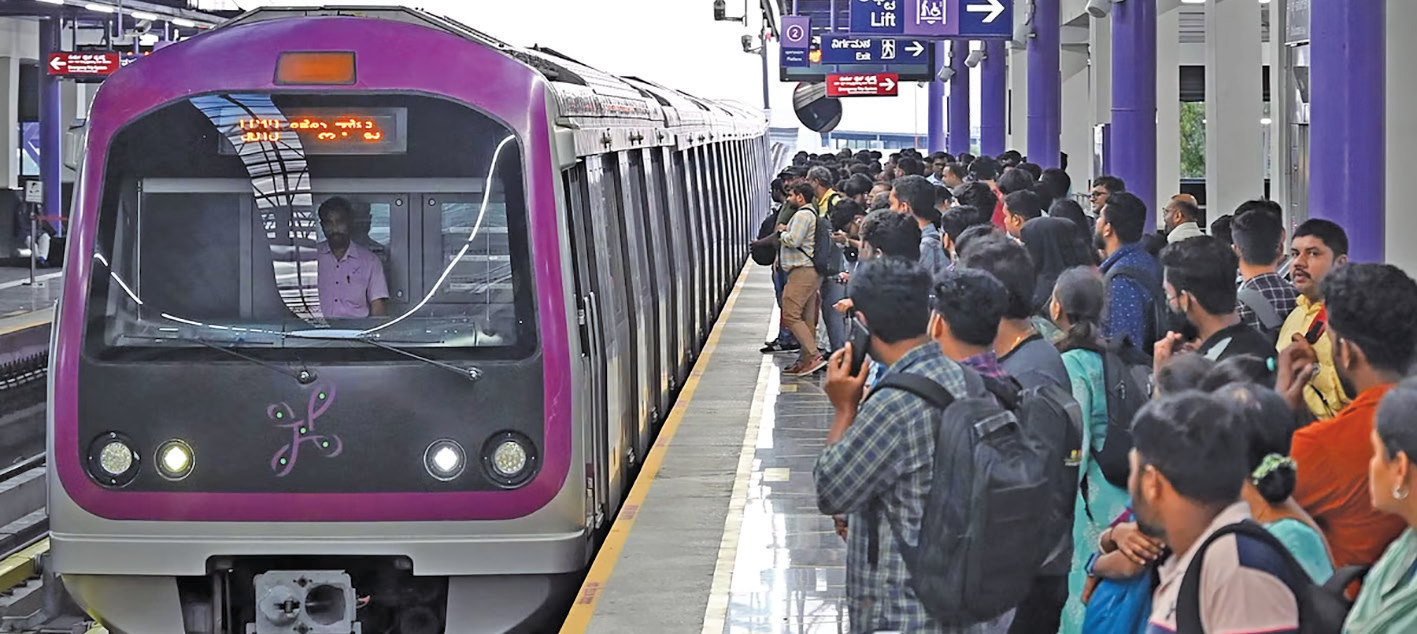
Namma Metro fare hike sparks concerns over cost and service quality
Commuters worried over rising living costs and stagnant service quality; call for better infrastructure, extended timings
Bengaluru: Bengaluru residents are already grappling with rising living costs, and now, Namma Metro commuters are set to face a significant fare hike for the first time in nearly eight years, with ticket prices expected to increase by 40-45 per cent. This comes shortly after BMTC and KSRTC implemented a 15 per cent fare increase. The revised fare, last updated in 2020, aims to address salary and provident fund dues, with the government offering a loan guarantee to raise Rs 2,000 crore.
The decision to raise metro fares follows recommendations from a government-appointed fare fixation committee. The last fare revision in 2017 saw a modest 10-15 per cent increase when the metro network spanned 43.2 km. Since then, the network has expanded to 76.95 km and is projected to reach 175.55 km by December 2026, with the completion of Phases 2, 2A, and 2B. As Bengaluru faces a significant fare hike on Namma Metro, commuters voice their concerns over the increased costs and stagnant service quality,. Thanushree, a 32-year-old private employee who uses the metro daily, shared her concerns with News Trail, saying, “While a Rs 5 difference in the base fare may seem small when I calculate the monthly cost, my expenses go from Rs 500 to Rs 750, which is an extra Rs 250.
It might not seem like much to the government, but it is significant for me, as I live on a budget and support my parents.” Rajkumar Dugar, founder of Citizens4Citizens, also voiced concern about the fare hike, warning that it could exacerbate traffic congestion. He emphasised that public transport should remain affordable to reduce reliance on private vehicles and ease congestion. Dugar suggested that BMRCL explore other revenue sources, like advertising. Another metro commuter from The Green Circle voiced frustration over the upcoming fare hike, highlighting that despite the increased prices, the quality of service and facilities provided by the metro has remained stagnant.
He proposed extending metro service hours until midnight to support night-shift workers and increasing train frequency during peak hours. Furthermore, investing in cycling infrastructure and promoting cycling as a last-mile connectivity solution is crucial. Safe and dedicated cycle lanes would encourage more people to cycle, reducing congestion and improving air quality. As Dhruv N K, a college student, put it, "Cycling is an affordable and eco-friendly option for short distances and having proper infrastructure would encourage more people like me to choose it.
This would ease the traffic and make commuting more sustainable in the long run." Well-known doctor Dr Ali Poonawala, said, “The city has ample potential for cycling, but its lack of dedicated, safe cycling infrastructure is a major setback. Cycle lanes are poorly connected and often taken over by vehicles, discouraging cyclists.''
 English daily published in Bengaluru & Doha
English daily published in Bengaluru & Doha






